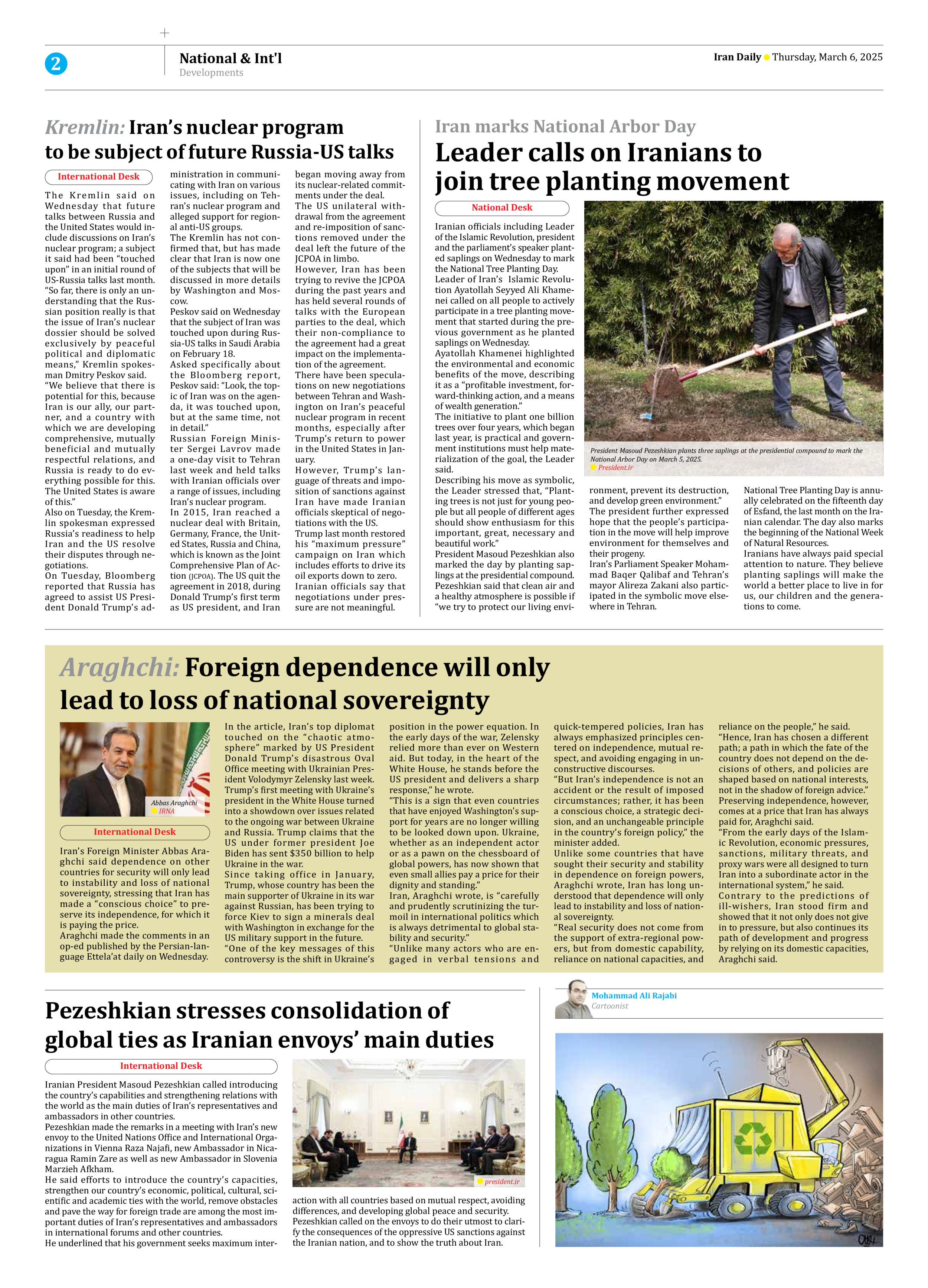
Araghchi: Foreign dependence will only lead to loss of national sovereignty
Iran’s Foreign Minister Abbas Araghchi said dependence on other countries for security will only lead to instability and loss of national sovereignty, stressing that Iran has made a “conscious choice” to preserve its independence, for which it is paying the price.
Araghchi made the comments in an op-ed published by the Persian-language Ettela’at daily on Wednesday.
In the article, Iran’s top diplomat touched on the “chaotic atmosphere” marked by US President Donald Trump’s disastrous Oval Office meeting with Ukrainian President Volodymyr Zelensky last week.
Trump’s first meeting with Ukraine’s president in the White House turned into a showdown over issues related to the ongoing war between Ukraine and Russia. Trump claims that the US under former president Joe Biden has sent $350 billion to help Ukraine in the war.
Since taking office in January, Trump, whose country has been the main supporter of Ukraine in its war against Russian, has been trying to force Kiev to sign a minerals deal with Washington in exchange for the US military support in the future.
“One of the key messages of this controversy is the shift in Ukraine’s position in the power equation. In the early days of the war, Zelensky relied more than ever on Western aid. But today, in the heart of the White House, he stands before the US president and delivers a sharp response,” he wrote.
“This is a sign that even countries that have enjoyed Washington’s support for years are no longer willing to be looked down upon. Ukraine, whether as an independent actor or as a pawn on the chessboard of global powers, has now shown that even small allies pay a price for their dignity and standing.”
Iran, Araghchi wrote, is “carefully and prudently scrutinizing the turmoil in international politics which is always detrimental to global stability and security.”
“Unlike many actors who are engaged in verbal tensions and quick-tempered policies, Iran has always emphasized principles centered on independence, mutual respect, and avoiding engaging in unconstructive discourses.
“But Iran’s independence is not an accident or the result of imposed circumstances; rather, it has been a conscious choice, a strategic decision, and an unchangeable principle in the country’s foreign policy,” the minister added.
Unlike some countries that have sought their security and stability in dependence on foreign powers, Araghchi wrote, Iran has long understood that dependence will only lead to instability and loss of national sovereignty.
“Real security does not come from the support of extra-regional powers, but from domestic capability, reliance on national capacities, and reliance on the people,” he said.
“Hence, Iran has chosen a different path; a path in which the fate of the country does not depend on the decisions of others, and policies are shaped based on national interests, not in the shadow of foreign advice.”
Preserving independence, however, comes at a price that Iran has always paid for, Araghchi said.
“From the early days of the Islamic Revolution, economic pressures, sanctions, military threats, and proxy wars were all designed to turn Iran into a subordinate actor in the international system,” he said.
Contrary to the predictions of ill-wishers, Iran stood firm and showed that it not only does not give in to pressure, but also continues its path of development and progress by relying on its domestic capacities, Araghchi said.







